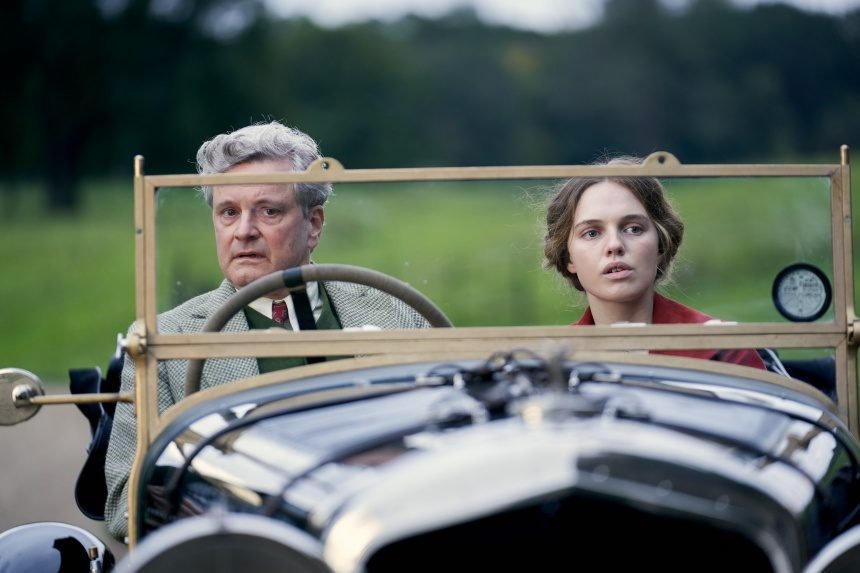Mothering Sunday
⭐⭐⭐⭐
Rating: R
Run Time: 1 hour 44 minutes
Stars: Odessa Young, Josh O’Connor, Colin Firth, Olivia Colman
Writer: Alice Birch, Graham Swift (novel)
Director: Eva Husson
Reviewed at the Toronto International Film Festival
In a mournfully quiet film like Mothering Sunday, the softest of sounds can startle like a cannon blast. Here, it is the sound of a single tear, rolling off a mother’s cheek, landing on a white linen tablecloth with a dampened, devastating, thud.
That moment of aural intimacy is just one of the understated glories in a film that finds delicacy, and sometimes the devil, in the details.
It is six years after the Great War and a sickening percentage of England’s young male population has been slaughtered on the altar of European aristocracy. Now it is Mothering Sunday — Britain’s version of Mother’s Day — and three wealthy English families, having lost four of their five sons, are gathering for a bittersweet (mostly bitter) luncheon by the river where their departed boys frolicked as children.
But the one remaining son, Paul (The Crown’s Josh O’Connor) is tardy. He’s otherwise engaged in an afternoon of romance with Jane (Odessa Young), a young maid who is employed by the Nivens (Colin Firth and Olivia Colman), parents of one of those lost boys.
The young couple’s passion is mixed with desperation, because both know they are hopelessly separated by the class strata of British society.
Directing from a script by Alice Birch (TV’s Succession) French-born director Eva Husson masterfully constructs her first English language film on the arc of that long, sad afternoon. She also jumps around in time, traversing decades in a single cut, piecing together the life of Jane from her humble beginnings dishing out kipper to becoming a fledgling writer and finally a celebrated author (look for a luminous Glenda Jackson playing Jane in her old age).
There is no denying the youthful stars, Young and O’Connor, are beautiful to look at, and they both give marvelously understated performances as a couple whose forbidden love is doomed in more ways than one.
But it’s those parents out in the garden, their psyches mortally wounded by war, who infuse Mothering Sunday with solemn life. With their distinguished bearing and defiant, quintessentially British determination to carry on, we almost can imagine the Nivens as having once been happy; having once actually looked forward to each new day.
Now, for these two, every breath is a heavy sigh. Their eyes have never seen war up close, yet still they have the thousand-yard stare of the shell shocked.
Most heartbreaking are their weak smiles and repeated intonation that “It’s a beautiful day.” We — and they — all know quite well that neither of them will ever have a beautiful day again.
Most of all, Mothering Sunday is an exquisitely realized film. Cinematographer Jamie Ramsay lingers lovingly on every face, be it fresh or time-worn. His floating camera follows a luminous Jane, shafts of light exploring her nakedness as she, in turn, explores the empty house while the family is off on their sadly celebratory riverside outing. She is a dancing flame of life, navigating the world of the dead.
Featured image: Scene from Mothering Sunday (Sony Pictures Classics)
Become a Saturday Evening Post member and enjoy unlimited access. Subscribe now



